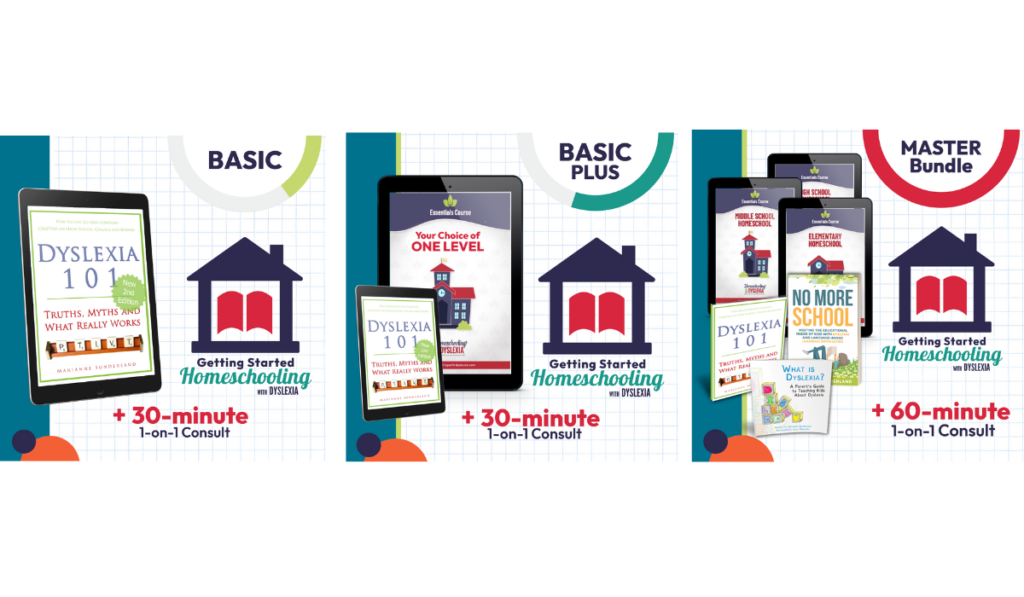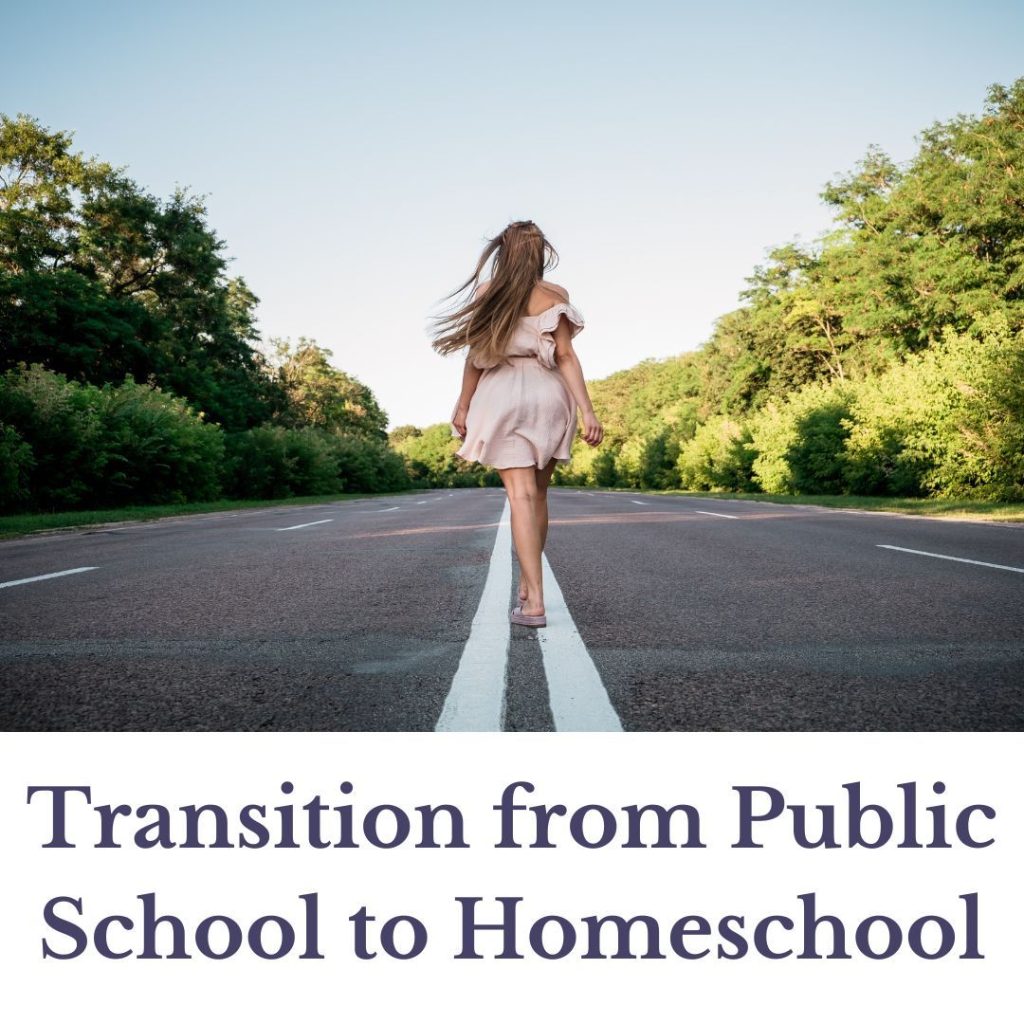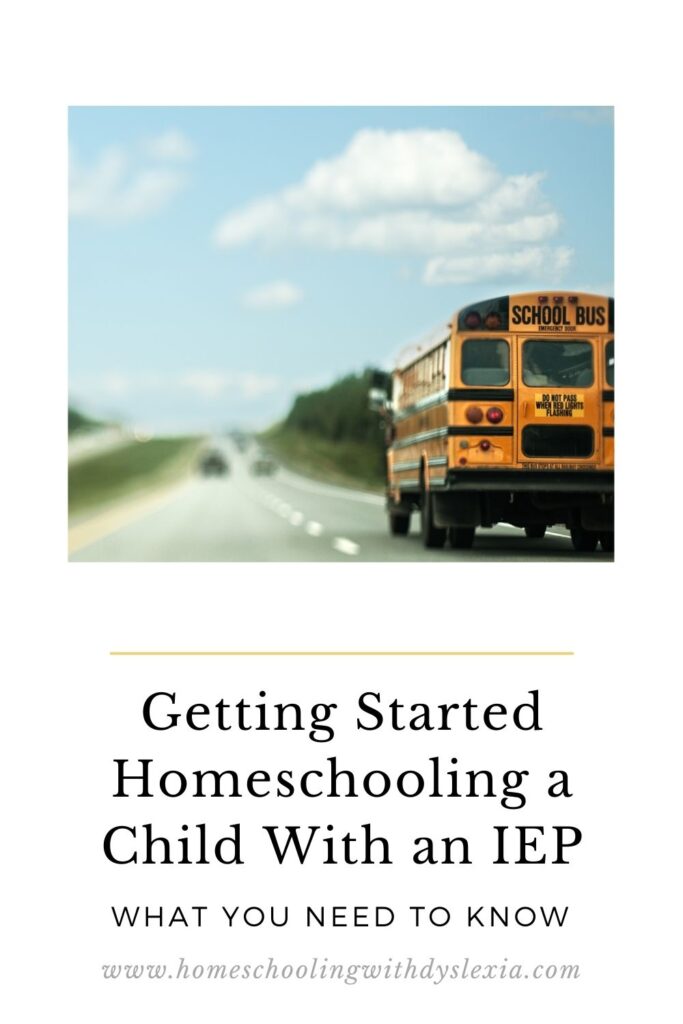I get a lot of emails asking about making the decision to homeschool with dyslexia. Pulling kids with an IEP from public school to homeschool can be a little confusing. Here’s what you need to know.
There was a community meeting this week in my town to answer questions for parents trying to decide whether to homeschool or not. The huge meeting hall was packed!
For a variety of reasons right now, homeschool numbers are on the rise.
As a coach and encourager of parents of kids with dyslexia, I have seen a steady stream of families pulling their struggling learners out of school because the schools aren’t meeting their needs.
It’s not uncommon for me to get an email from desperate parents who KNOW they cannot continue to send their child with dyslexia to school because of the emotional damage that is being done. BUT, they have no idea where to start.
Here are some things you need to know about pulling a student with learning difficulties out of school (whether they have an IEP or not).
Legalities of pulling kids with an IEP from public school
There are NO laws, rules, or otherwise stopping you from homeschooling your child. An IEP or 504 plan does not hinder you from deciding to pull your child out of school.
Follow your school’s procedure for withdrawing your child.
Go to the Homeschool Legal Defense website to determine the homeschooling laws in your state. Here in CA, we can file what’s known as a Private School Affidavit which essentially sets us up as a private school.
Making the transition to homeschooling
In my 25 years of homeschooling, one of the best parts about homeschooling has been having the time to do life alongside my kids.
Before you ‘hit the books’ so-to-speak, have a conversation with your kids about your decision. Many children with learning struggles will be relieved to be homeschooled while some, often the super social kids, will have doubts and wonder about seeing their friends.
Being open about your decision and listening to your kids’ will go a long way in establishing strong family relationships – a big part of a happy homeschool.
For kids who have been stressed out and anxious about learning due to their learning difficulties, consider a time of deschooling. Deschooling is taking a break from formal academics with the purpose of rekindling an interest in learning and strengthening relationships among family members. You can read all about how to deschool your child in this post.
Finding the right homeschool curriculum
You don’t need to have everything figured out to start homeschooling. It’s okay for your kids to play, hang out, reorganize their closets, watch YouTube videos, read books, or whatever else is of interest to them while you piece together your homeschool curriculum and plan.
Depending on your children’s ages, you’ll need to purchase a variety of curriculum to cover required subjects like English, math, social studies, etc.
This can be a time-consuming process. I have created a free 50-page guide to choosing a dyslexia-friendly curriculum.
Homeschool Planning and Schedules
There is a lot of freedom in homeschooling. For example, you don’t have to start school early in the morning. If your kids are early birds, go for it! But if not, you can start whenever is a good time for your family. I’ve known families with teens who didn’t start school until after noon because that schedule worked best for them.
Likewise, you don’t have to follow the traditional public school calendar. Many homeschoolers choose to school year-round which does mean doing some school in the summer. Homeschooling year-round gives families the freedom to travel or take breaks during the traditional school year for non-academic things.
Because my kids with dyslexia take longer to master some subjects and can easily forget concepts they’ve learned during the traditional school year, we do a few days of math each week during the summer to avoid that ‘summer slide’.
What about my child’s IEP or 504 plan?
You have to check with your child’s school but many schools do not allow a child to continue to receive services if they are not physically attending school.
If you are happy with your child’s services, contact HSLDA.org for counsel on the laws in your state.
Honestly though, you can oftentimes provide the same or even better services than the schools at home yourself or by hiring your own experienced tutor.
In my experience with the special services department of our local charter/public school, the services were not research-based and were highly inefficient and therefore, unsuccessful.
I have, however, heard of families who are getting Orton-Gillingham reading instruction 2-3 times per week through their school. This would be worth looking into continuing.
Do I need to follow the IEP once I’m homeschooling?
No. You do not have to follow the goals or provide the services listed in your child’s IEP. You will want to provide some kind of services for your child, often referred to as remediations.
Providing your own remediation
In the world of dyslexia, there are two educational terms that are important to know.
Remediation
Remediation is the remedying or fixing of the foundation of learning. Remediations are outlined in a public schooled child’s IEP. An IEP lists an individual child’s learning goals and the specific methods that will be used to reach those goals. These services are remedial – they are helping to strengthen the child’s areas of weakness.
For example, remediation for a dyslexic child who struggles mastering reading is 3-5 hours per week of research-based reading instruction with the Orton-Gillingham approach. In school, your child may or may not have had this form of remediation. They may have had phonics instruction or one-on-one time with a teacher but not necessarily using the OG approach.
At home, you have several options. You can hire an experienced dyslexia tutor or you can teach them yourself using one of several Orton-Gillingham curricula designed for use at home.
See this comparison of the top four Orton-Gillingham reading programs for use at home here.
Learn how and when to hire a dyslexia tutor here.
Learn how to find free or inexpensive dyslexia tutoring here.
Accommodations
The other educational term you need to understand is accommodation. Accommodations are found on a public schooled child’s 504 Plan.
Accommodations include the use of assistive technology, typing instead of writing, using a calculator, listening to audiobooks, extended time on tests.
To learn more about accommodations and the best accommodations for kids with dyslexia, read this.
Accommodations like these allow our kids to work at their intellectual ability. Consider the example of a student with dyslexia writing a paragraph summary of a book they read. A handwritten response would be far inferior to one that is spoken or dictated using speech-to-text technology.
In your homeschool, your problem will not be getting permission to use accommodations as in many public schools. Your problem will be accepting that you have the freedom to allow them. To learn more about getting started with assistive technology and how that can help your child become a more successful, independent learner, read this post.
Homeschooling Fears
I’m not going to lie, homeschooling is a big responsibility and so it is natural to have some fears about messing up. However, after my 25+ years of homeschooling that have included a LOT of mess-ups, I’m here to say that it’s pretty hard to mess things up in a way that is of major concern. In other words, your kids can be behind in math, have a few years of unschooling during a family crisis, have gaps in their learning, and still go on to be happy, successful young adults whether in college or on another path.
Here are my answers to some common fears about homeschooling.
Will homeschooling put my child at a disadvantage?
The short answer, no. There are many studies on the effectiveness of homeschooling that show homeschooling to be a good, viable option for education. Kids who are homeschooled face little trouble getting into the very best colleges and are known for being well-adjusted young adults with strong leadership skills as they mature.
What about my child who is behind?
I wish I could wrap my arms around you right now and assure you that your child is NOT behind. They are right where they need to be. Being behind is a school mindset. Learn more about why worrying about being behind is not necessary here. Start where they are (if they’re in 6th grade doing 4th-grade math for example) and be consistent. Grade levels were created to help organize large groups of children in an institutional setting. As a homeschooler, you have the freedom to teach your child at their unique pace. If you struggle with this or want more information on the history of education and what it takes to meet the real needs of kids with dyslexia, I strongly encourage you to read my latest book, No More School: Meeting the Educational Needs of Kids With Dyslexia and Other Language-based Learning Difficulties.
I’m afraid I’m going to mess up my kids.
I’m pretty sure most parents have this fear and certainly most homeschooling parents as well. The truth is that living life together as a family is messy! There are good days, months, even years, and not-so-good ones. Coming out the other side, these things strengthen families. I worried a lot about my oldest kids who spent an extraordinary amount of time playing and a very small amount of time doing school some years. They now tell me how much they appreciate their childhood play with siblings.
I feel overwhelmed. Help!
It’s important to find a group of like-minded families to homeschool with. Whether you find a local group or an online group, having people to share your experience with makes a huge difference. Everybody is struggling with something. When we share our wins and losses we all get stronger.
How to find homeschool support groups. Read this post for more info on finding support groups.
Get help to transition from public or private school to homeschool:
Purchase one of my Getting Started Homeschooling Packages


Other posts of interest:
7 Mindsets Shifts for New Homeschooling Parents
10 Truths About Teaching Kids With Dyslexia
What I Wish I’d Known Before I Started Homeschooling
What questions or fears do you have about homeschooling your dyslexic kids?






IDEA guarantees that homeschool students have the same rights as private school students with regard to a FAPE (Free and Appropriate Public Education). That’s important for the identification of disabilities through Child Find, which makes testing free to parents. Set aside funds make SOME services available, usually Speech. It’s worth checking into.
Thank you Rene!!
I am just wondering what about putting your child back in public school after taking them out to homeschool? My son had an IEP in public school for speech. I took him out to homeschool him in 2020 and still are, presently. This past summer (2022) my son was diagnosed with dyslexia and dyspraxia by a neuropsychologist at Children’s National here in VA. I am not sure if we will wind up eventually putting my son back in public school in the future, and I am confused about how to get his IEP updated with this new dyslexia and dyspraxia diagnoses and also how to keep his IEP current if he is not in the public school system. Or if I even need to. If you have any advice on this, it would be so helpful. Thank you!
I’m not too sure about this. I would be in touch with the school. Unfortunately, you will probably have to wait for approval and get new testing.